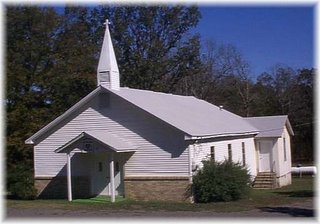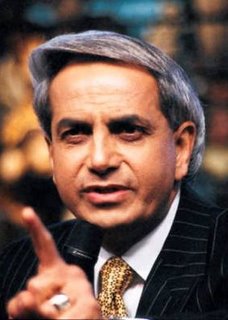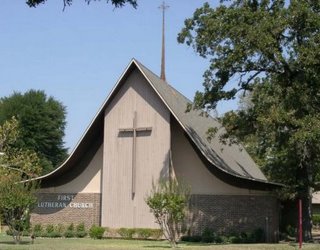
Harmony United Methodist
I was appointed to Harmony in June 1991.
Harmony was the 9:30 church on a two point with Floyd UMC.
Harmony is very rural and has a cemetary with graves dating back almost to the civil war.
The Harmony community has 2 churches, The UMC and a Church of Christ (Campbelite). Both churches are about the same size with the UMC being the more ornate of the two. Harmony had a membership of about 45 with an average attendance of 26.
Although Harmony didn't have the resources to have the programming and outreach of larger churches, they were quite the vital small rural church. Harmony had a wonderful shape note hymn sing on the first Saturday of each month. The attendance of the hymn sing was usually 50 or 60. The 4 part harmonies were great at Harmony.
Harmony prided itself in paying over 100% of its apportionments and giving generously to all of the general offerings. Harmony had a very strong loyalty to the Methodist church.
I was the youngest person there most Sundays. (I was 31 when I was appointed) The next youngest regular was in her 50's. With a congregation that had an average of around 75 we did have our share of funerals. Most people would assume that a church with all older members would be destined for closure. The numbers seemed to stay about the same for the 3 years I was there and have remained almost stable in the 20 years since. When one older person dies a "younger" one retires and moves into the community and joins the church.
While I was pastor of the Floyd/Harmony charge I prepared a childrens sermon for the Floyd church every Sunday. The Harmony church only had children when Grand Children came to visit. The first Sunday that we had a visiting grandchild I did the childrens sermon at Harmony. I often based my childrens sermon on some part of the sermon that I thought children wouldn't understand or the symbolism of the colors of the liturgical year. The first Sunday of Advent or Epiphany etc I would discuss the season.
That 1st Sunday that I did the Childrens sermon at Harmony I explained the change in the altar clothes. The older folks at Harmony asked that I would do the childrens sermon even when there weren't any children. I also used childrens time to discuss a lot of the Methodist concepts such as prevenient grace and the quadrilateral. After a few months of covering the Childrens sermon topic at Harmony some of the seniors that had been members of the church for decades said that they learned more about the Methodist church in a few months than they had in decades.
I came to realize that many people can be every Sunday worshipers and Sunday School attenders and not understand the liturgical year or some of the uniquely Methodist concepts on grace. I think one of the biggest mistakes made by pastors is assuming that the congregation understands why we do the things we do. We might know that we need to put a scripture in contest or explain bigger theological concepts but we don't always remember to explain the basics.
I have heard that churches that are pastored by Student Local Pastors tend to go through the course of study with the pastor. Harmony had been a retired pastor church for decades and I was the first student local pastor so I took them through a lot of what I was learning. They were quite patient with my early bungled sermons and were great teachers and learners.
The community of Harmony had quite a rivalry between the Church of Christ and the UMC. Most of the extended families of the community had members of both churches. The Church of Christ was old school & claimed that churches with pianos were evil and anyone that was a member of a "denominaitonal" church was hell bound.
One of my favorite members was Miss Viola. She was a great cook and her nephew who lived next door was a member of the CoC. Every now and then he would tell Miss Viola that she was going to hell for being a Methodist. She would quit cooking for him and within a week he would decide that maybe Methodists were going to heaven. She made all her own bread and grew quite a garden. When she turned 90 her son decided she didn't need a garden any more. She cried when they sold her tiller. About a year after I left the circuit her son sold her wood stove and got her a gas stove. Within a few months she died. I actually think she might have lived longer if she had been able to keep her wood stove.
The ladies of the Harmony church had quite a quilting bee going and on Monday mornings I would stop by and watch them quilt and have a cup of coffee. I watched them make one quilt that was really beautiful for several weeks. When the weather started getting cold that fall I stopped by and they had just finished it, they had all embroidered their names on the back of it and presented it to me. That will always be my favorite quilt! I took it with me when I went back to preach Miss Violas funeral, she had requested that I would preach it when she died.
May Gob bless all the little Harmony churches out there.










